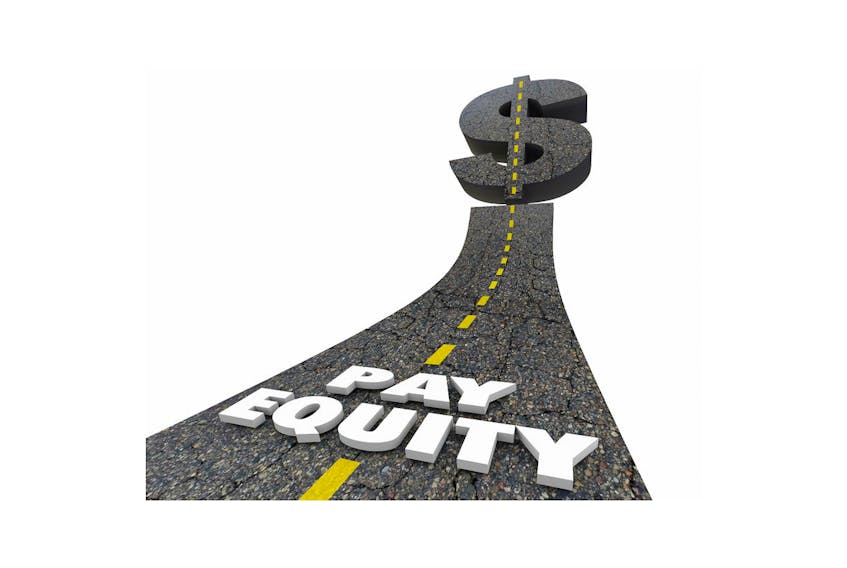Jennifer Tipple didn’t always possess the confidence and attitude to deal with unwanted and inappropriate words or actions from male colleagues.
That, she says, was hard won.
In her early 20s, on her first of two consecutive work terms in an office, she was subjected to regular sexual harassment on the part of her manager, a man she figured was at least 30 years or more her senior.
On her second work term in the same office, another male colleague grabbed her breast on the dance floor.
“I can actually still remember how the dry skin on his hand snagged my dress,” Tipple recounts.
“I ran off to the coatroom in tears and was consoled by a female colleague. Her kind words: ‘Don't mind him, he does that to all the women.’”
On this occasion, instead of letting it slide in fear of compromising future career opportunities, as she did her first time around, she let human resources know.
“I didn't want to get him fired but I did want it on record, and I wanted him to know that what he did wasn't right,” she says. “As far as I know, nothing was ever done.”
While no doubt troubling to her and not the last she experienced in her professional life, Tipple’s experiences are not unique.
An Angus Reid Institute survey conducted earlier this year indicated that 52 per cent of Canadian women have experienced sexual harassment in the workplace and that 28 per cent of them were subject to non-consensual sexual touching.
“Accounting for the women who chose not to answer the harassment question, the 52 per cent who have experienced harassment in their working lives extrapolates to at least 6 million women,” the survey report reads.
It begs the question of whether these women would have answered honestly if not for the #MeToo movement that was born from allegations of rampant sexual misconduct on the part of Hollywood film director Harvey Weinstein and has grown to include nearly daily stories in the media of men in a position of power being accused.
“In the 21st century, slapping a coworker's bum should be about as acceptable as lighting up a cigarette at your desk.” – Jennifer Tipple
“The #MeToo movement is not about sex,” says Scott Thomas, diversity manager for the Cape Breton Regional Municipality. “It’s about the implicit system of power in the workplace. You know, who has it, who exercises it and who suffers due to a lack of power.”
Many of his colleagues will fall on both sides of the issue — those who believe the men are guilty as victims come forward with their stories and then others who ask where is the evidence to prove these accusations.
“It goes both ways. We have to be honest because there’s discussion around (someone saying), ‘I’ve experienced it or know people who have experienced it,’ or we hear other people saying, ‘Like I just don’t understand it. This is getting out of hand,’” Thomas says.
“So that’s where the importance of interjection of good education is so important for people to understand there is a process, but what does that process look like.”
Twila Reid, a partner at the law firm Stewart McKelvey in St. John’s, specializes in labour and employment law and says the movement and others like it demonstrate a public willingness for women in particular to tell their story. But, she said, it also suggests that sexual harassment is just “one symptom of the underlying root problem of inequality.
“I think employers who are really wanting to get in front of this issue need to be not just thinking about harassment, but they need to be thinking about diversity, inclusion, pay equity,” says Reid. “They need to recognize that women and minorities are the most likely people to not be treated equally at work and they should be considering proactively what strategies they can have at the workplace to further support equality.”
READ THE FULL SERIES
- Women can be 'powerhouses' in business world
- After #MeToo, men wary about mentoring women in workplace in post : survey
- Tackling sex harassment claims head-on, companies turning to HR consultants to clear the air
- Blazing their own trail: after corporate life, women are starting their own businesses
- WE ASKED: What words or behavior bother you in the work place?
Regarding harassment, Reid says in her experience many companies already have policies in place to address it but most are woefully past their prime.
As such, she advises employers to take them down off the shelf every three to five years, kick the tires and see if they still hold up when the rubber hits the road.
Among some of the changes in respectful workplace policies she has witnessed is a clear differentiation within the policy of what constitutes interpersonal conflict and what can be considering harassment.
She’s also seen employers allow a third party to initiate the complaint process, as opposed to the traditional method of the complain starting with the individual on the receiving end of the behavior.
She says there’s also merit in having a “point person” responsible for implementing the policy and a respectful workplace.
“Not just the policy which tends to be a complaint-driven process but also being proactive in terms of implementing, training or other best practices in terms of having a positive workplace for everybody.”
Tipple, who now works in a socially-oriented sector which serves vulnerable and marginalized populations, says workplace policies need to treated the same as muster stations or accident reports.
“In the 21st century, slapping a coworker's bum should be about as acceptable as lighting up a cigarette at your desk. And yes, laws need to be changed to enable everyone — not just women — to do their jobs without fear of being harassed or intimidated,” says Tipple, who hopes universities and colleges are doing more to educate their students about harassment in the workplace.
With files from Chris Shannon at the Cape Breton Post
[email protected]
Twitter: kennoliver79









